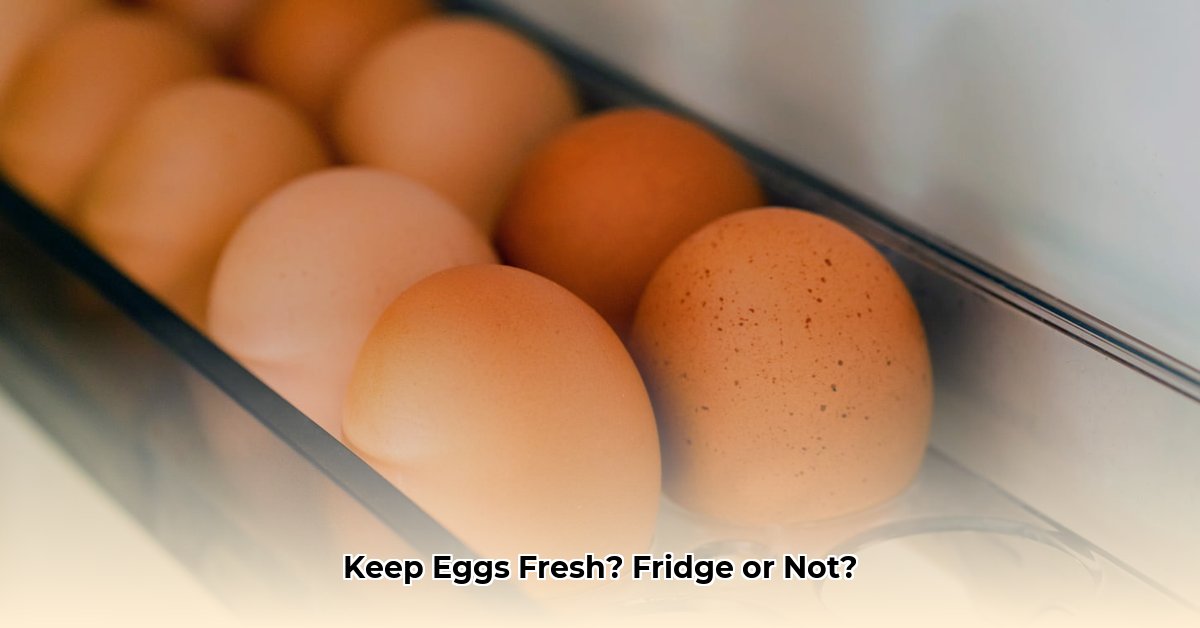The age-old question: do fresh eggs really need to be refrigerated? Grandma may swear hers sat on the counter for weeks perfectly fine, while your British mate might be puzzled by your fridge full of eggs. The answer isn’t a simple yes or no. It’s a bit of a shell game (pun intended!), depending on a few key factors.
Cracking the Code: The Bloom
Ever notice a powdery coating on some eggs? That’s the “bloom,” a natural protective layer. Think of it as nature’s shrink-wrap, sealing the pores and keeping bacteria out while locking moisture in. If your eggs have an intact bloom (meaning they haven’t been washed), they likely don’t need refrigeration for a couple of weeks, provided you store them in a cool, dry place. Snapping a picture of the bloom is a fun way to celebrate a truly fresh egg!
[Include image of an egg with a visible bloom]
The US Wash: Why Refrigeration Matters Here
In the US, most commercially produced eggs are washed, which removes the bloom. Though this improves cleanliness, it also leaves the pores open to contamination. Refrigeration is therefore essential for store-bought eggs in the US to prevent bacterial growth, especially Salmonella. So, straight to the fridge they go!
[Include image of washed eggs]
Across the Pond: A Different Egg-sperience
In the UK and some other countries, hens are often vaccinated against Salmonella, reducing contamination risk. This allows eggs to be sold unwashed, bloom intact, often stored at room temperature. Food safety regulations and practices clearly differ globally, impacting even how we store our eggs.
Chill Out: Consistency is Key
Once refrigerated, an egg needs to stay refrigerated. Room temperature can cause condensation on a cold egg, potentially promoting bacterial growth. So, pick a storage method (fridge or cool room temperature, depending on the egg and your location) and stick with it!
Naturally Chilled Eggs: From Nest to Fridge?
Sometimes, especially in colder climates, eggs gathered from the nest might feel cold. You can refrigerate them immediately or store them at a cool room temperature like other unwashed eggs.
The Float Test: How Fresh Are Your Eggs?
Unsure about freshness? The float test is a simple solution:
- Fill a bowl with cool water.
- Gently place the egg in the water.
- Observe:
- Lies flat: Very fresh.
- Tilted or stands on one end: Older but likely still good.
- Floats: Bad, discard.
[Include image or short video demonstrating the float test]
Egg Storage Quick Guide
| Egg Type | Storage Method | Shelf Life (Approximate) |
|---|---|---|
| Unwashed | Cool Room Temperature (50-70°F/10-20°C) | Up to 2 weeks (possibly longer) |
| Unwashed | Refrigerator (40°F/4°C or below) | 3-5 months |
| Washed (US) | Refrigerator (40°F/4°C or below) | 3-5 weeks (check carton date) |
Beyond the Basics: Pickling, Freezing, and More
This guide provides a solid foundation, but current understanding of egg storage could change with new research. There are other long-term storage methods like pickling and freezing — freezing whisked eggs can extend their life up to a year! And if you’re ever unsure about eggs left out too long, err on the side of caution and don’t eat them. Future articles will explore egg storage containers, candling, and more.
Disclaimer: This information is for educational purposes and should not be substituted for advice from a qualified food safety expert. Consult resources like the USDA or your local food safety authority for the most up-to-date guidelines.
- How to Stop Apps From Running in the Background to Boost Your - December 1, 2025
- How To Move Apps On Your Droid For Better Organization - November 30, 2025
- How to Move Apps on Android for Better Organization - November 29, 2025










